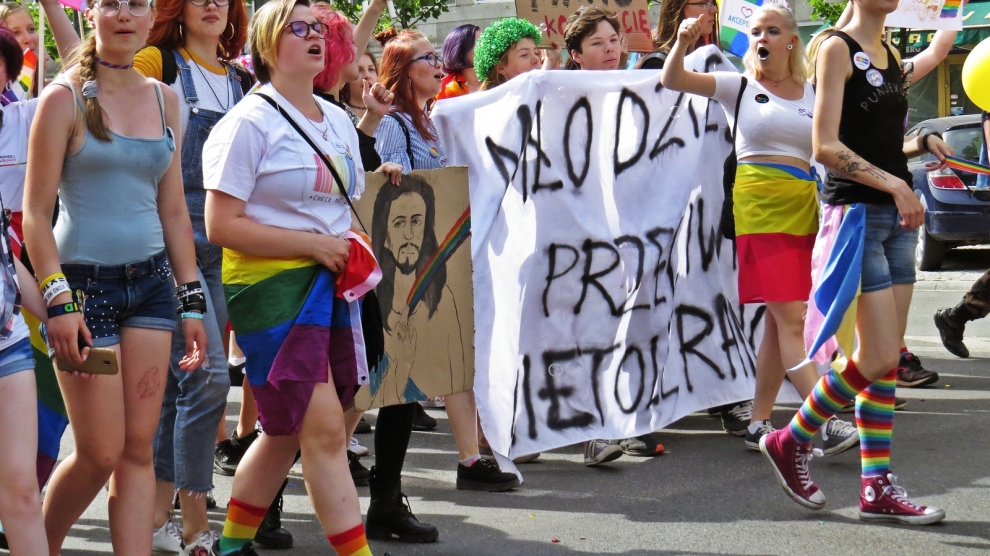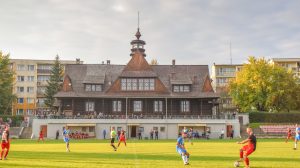A global LGBT+ rights group, All Out, has launched a campaign in Poland in response to the recent wave of attacks against the country’s LGBT+ community.
Mathias Wasik, the director of programmes at All Out, told Emerging Europe that the organisation has been working in Poland since 2016, crowdfunding a campaign to fund shelters for homeless LGBT+ people.
He claims that the increasing levels of hate against the community is cause for concern.
“More recently, we’ve been particularly worried about the escalation of attacks on LGBT+ people in Poland. Right-wing politicians and representatives of the Catholic church have been using the issue for their own political agenda. And their divisive words are being followed up by hateful actions, as we’ve seen during the attacks on the pride march in Białystok.”
The homophobic attack on the march in Białystok was just one in a mounting number of incidents against the community. As many as 30 municipalities around Poland have declared themselves ‘LGBT-free zones’, while weekly newspaper Gazeta Polska planned to distribute stickers with that same slogan in an issue late last month. Only the decision of a Polish court and the threat of a boycott from major advertisers prevented the conservative newspaper from doing so.
The most recent attack on the LGBT+ community took place on August 13, when a 15-year-old boy blocked a Pride March with a crucifix in the city of Płock to “counteract evil deeds”, professing himself as a “Catholic, traditionalist, conservative and a patriot”.
However, many in Poland are fighting back against this hate. Earlier this month the hashtag #JestemLGBT (I am LBGT) went viral on twitter, as Poles came out on the social media network to counter the extremist hysteria fuelled by many leading conservatives.
The attacks against the LGBT+ community in Poland have also brought support from all over the world, exemplified in All Out’s latest campaign.
“Poland relies heavily on funding and investment from the European Union so we decided to target the European Commission and ask them to condemn the attacks and urge the Polish government to protect the LGBT+ community and to pass legislation on hate crimes based on sexual orientation and gender identity,” Mr Wasik said.
A petition outlines the threat faced by the LGBT+ community, while calling on the EU to “condemn these acts of violence and discrimination and to urge the Polish authorities to protect the LGBT+ community and to pass legislation on hate crimes based on sexual orientation and gender identity.” It is addressed to Jean-Claude Juncker, European Commission president and Ursula von der Leyen, European Commission president-elect.
The petition is currently sitting just below 39,000 signatures, but Mr Wasik says “we’re hoping to get many more people to show their solidarity with Polish LGBT+ citizens in this moment of crisis.”
The campaign is run in partnership with two Polish groups, Kampania Przeciw Homofobii (KPH Campaign against homophobia) and Lambda Warszawa, who Mr Wasik describes as “the leading voices behind the campaign”.
When asked about the near future for the LGBT+ community in Poland, Mr Wasik highlights its politicisation as an electoral battle-ground. “We’re expecting this debate to escalate even further in the lead-up to the parliamentary elections in Poland this October.”
As for the future of the campaign, “we’re now focussing on getting the word out about this campaign and getting as much support as possible over the next few weeks, while we’re discussing further steps of action with our partners in Poland.”






[…] All Out: The campaign against homophobia in Poland […]
[…] All Out: The campaign against homophobia in Poland […]